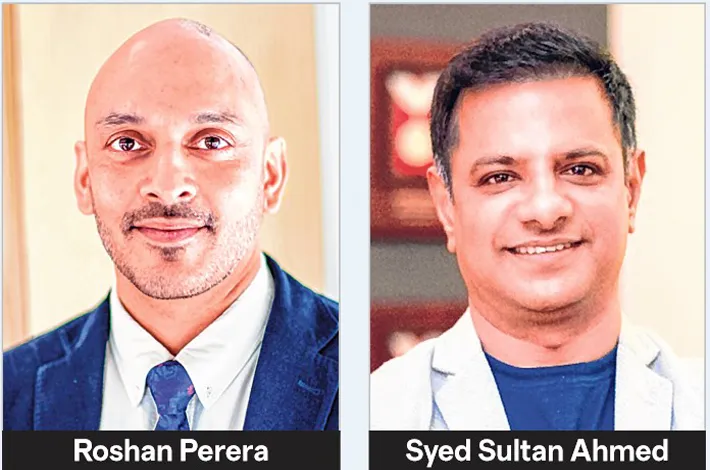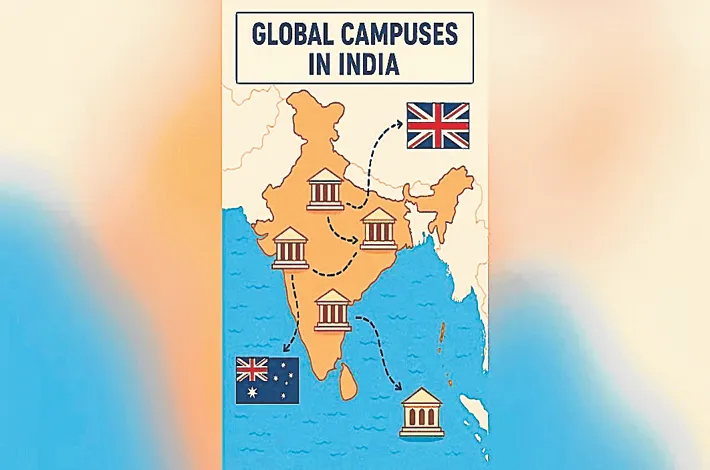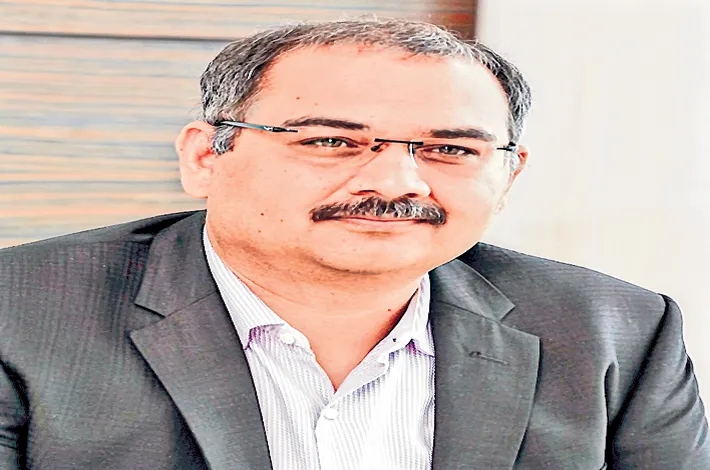WACE in India: Redefining International Education
06-08-2025 12:00:00 AM

Simple Vishwakarma Mumbai
In an exclusive conversation with The Free Press Journal, Roshan Perera, Assistant Executive Director of Examinations, Certification, and Testing at SCSA (School Curriculum and Standards Authority-the education board, Government of Western Australia), and Syed Sultan Ahmed, Chairperson of TAISI, discuss Western Australian Certificate of Education’s (WACE) growing presence in India, its alignment with NEP 2020, and their vision for accessible, quality international education across the country.
FPJ: What brings the WACE team to India this time?
Roshan Perera: For nearly four decades, we’ve licensed overseas schools to deliver the Western Australian curriculum. A few years ago, our government decided to grow this program globally, with India being a key focus. One major milestone was getting recognition from the Association of Indian Universities (AIU), which means our curriculum is officially accepted here.
We’re now strengthening that foundation through partnerships, especially with WACE in India and the TAISI. Our aim is to offer the Australian curriculum as a legitimate and affordable international option alongside IB and Cambridge, in line with India’s National Education Policy. What sets us apart is our focus on quality and accessibility. As a government body, we ensure high standards, including 150 hours of annual professional development for teachers at no extra cost, along with strong teaching and assessment resources.
Syed Sultan Ahmed: Indian parents — especially in the middle and upper-middle class — are increasingly looking beyond CBSE and ICSE for global education that’s still affordable. That’s where WACE stands out. Being government-backed gives it a credibility that resonates with families. And this interest isn’t just limited to big cities anymore, even parents in places like Kolhapur or Nagpur are seeking international options.
FPJ: How is the SCSA working to attract Indian students to Western Australia?
Roshan Perera: We’d love to see more Indian students in Western Australia. Our economy is growing, and we need skilled talent. But ultimately, it’s about giving students the freedom to choose their own path — whether that’s in WA, elsewhere abroad, or in India. With AIU recognition, the WACE curriculum now offers Indian students flexibility. They can transition smoothly into Indian universities or pursue global opportunities. It’s a curriculum designed not just for knowledge, but for building skills like critical thinking and problem-solving — the kind employers value.
Syed Sultan Ahmed: Indian parents today have global aspirations. WACE matches that ambition with a curriculum that’s globally recognised and now accepted by Indian universities too.
FPJ: How is WACE different compared with the IB and Cambridge curriculums?
Roshan Perera: While WACE, Cambridge, and IB all offer strong programs, there are clear differences. Cambridge heavily relies on final external exams for university admissions, while WACE uses a balanced approach— combining school-based assessments and final exams. This helps give a more accurate picture of a student’s abilities, recognising that not everyone performs best on a single exam day. Our exams are centrally managed, but we also use “social moderation”—working closely with teachers to ensure fair and consistent grading. Unlike IB, which offers a flexible framework, WACE provides a clear, structured curriculum with defined outcomes and standards.
FPJ: You mentioned that teachers will receive 150 hours of training. What are the plans for delivering that training?
Roshan Perera: Yes, the training is multi-modal. We use a learning management system (LMS) with interactive online modules that teachers can complete at their own pace, often from home. These modules cover curriculum, teaching, and assessment, and are developed by our team in Western Australia — many of us being former teachers, principals, or heads of departments. We’re also exploring a ‘train-the-trainer’ model with TAISI for schools that are already implementing the curriculum well.
FPJ: What's the strategy behind onboarding 100 schools? Are you targeting specific boards like CBSE, IB, or state boards?
Syed Sultan Ahmed: Our goal is to onboard 100 schools in 3–4 years, but it’s not a sales push — it’s about finding the right partners. We’re not focused on what board a school follows, but whether the leadership is ready to shift to a concept-based, skills-driven international curriculum like WACE.
FPJ: Do you have a set of criteria or specific parameters that you're looking at while identifying these schools?
Syed Sultan Ahmed: Yes, we do have parameters. For example, CBSE schools already meet benchmarks for teacher qualifications, infrastructure, labs, and instructional hours — so they’re often well-prepared to adopt WACE. With state board schools, it varies. Some are outstanding, but readiness depends on the state and the individual school. Institutions like Kendriya Vidyalayas, Navodaya Vidyalayas, and Army Public Schools already have the infrastructure and academic discipline needed. In states like Maharashtra, we’ve seen promising schools too—but ultimately, it’s about whether the school has the vision and readiness to take that international leap.
FPJ: How does WACE ensure consistency in grading across schools? What kind of moderation system is followed?
Roshan Perera: We ensure consistency through continuous moderation — especially social moderation. This includes reviewing teaching plans, assessments, and grading. We also do consensus moderation, where teachers come together to align on grading standards. Final-year results combine school-based assessments and external exams. We use the exam marks to statistically moderate internal scores, ensuring fairness across schools —whether in India, Australia, or elsewhere.
Syed Sultan Ahmed: And WACE has nearly 40 years of experience doing this globally — in places like Japan, China, Cambodia, and Turkey. That international exposure helps them work with schools of all kinds while maintaining and raising academic quality.
FPJ: How does the WACE curriculum align with the vision of NEP 2020—especially when it comes to competency-based and holistic learning?
Roshan Perera: As part of our AIU accreditation, we had to show how WACE aligns with NEP goals, and there’s strong overlap. Teacher development is a big one. The NEP emphasises upskilling, and we prioritise that deeply. Inclusive education is another focus, our framework helps schools support students with neurodiverse needs or physical disabilities through clear, built-in processes.
Our curriculum also blends content with skills. From kindergarten to Year 12, it moves beyond memorisation. Students engage with Bloom’s taxonomy, analysing, applying, creating, not just recalling.








